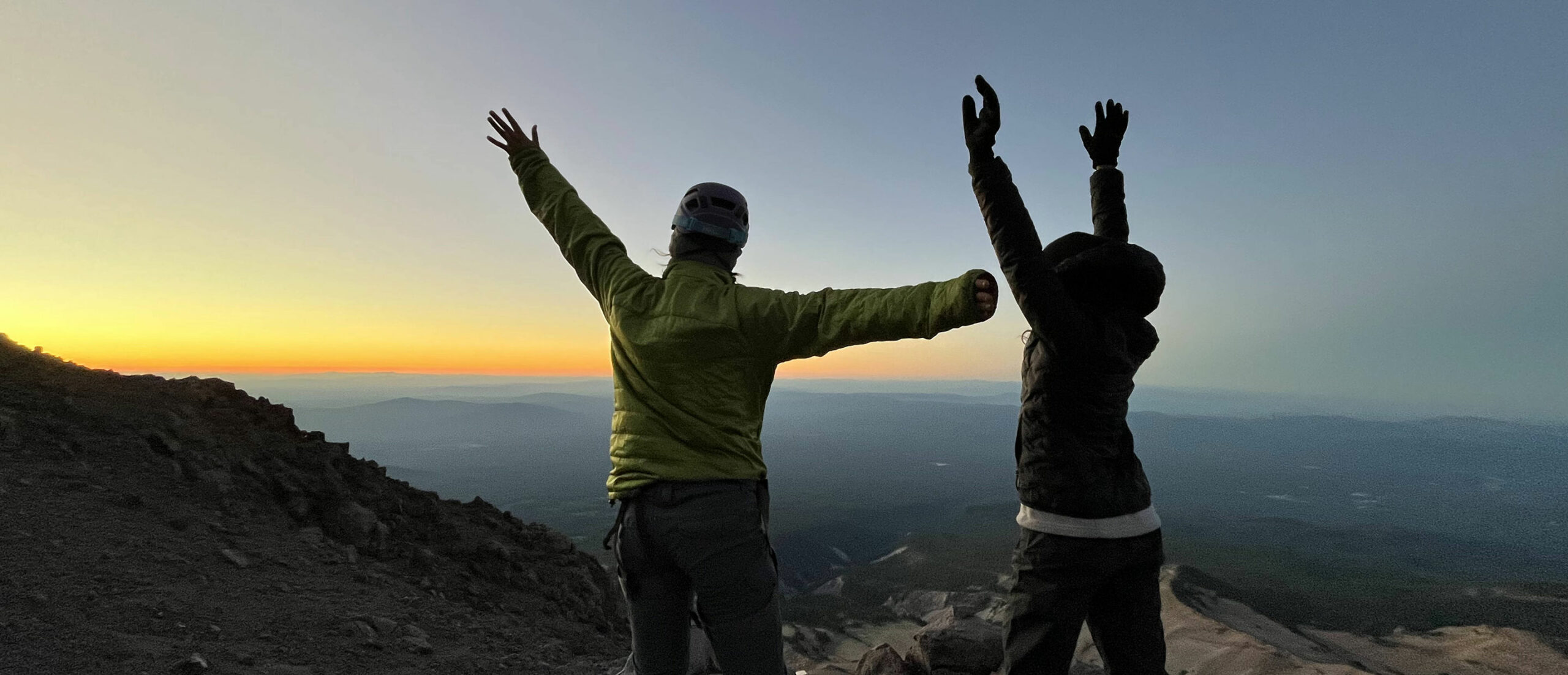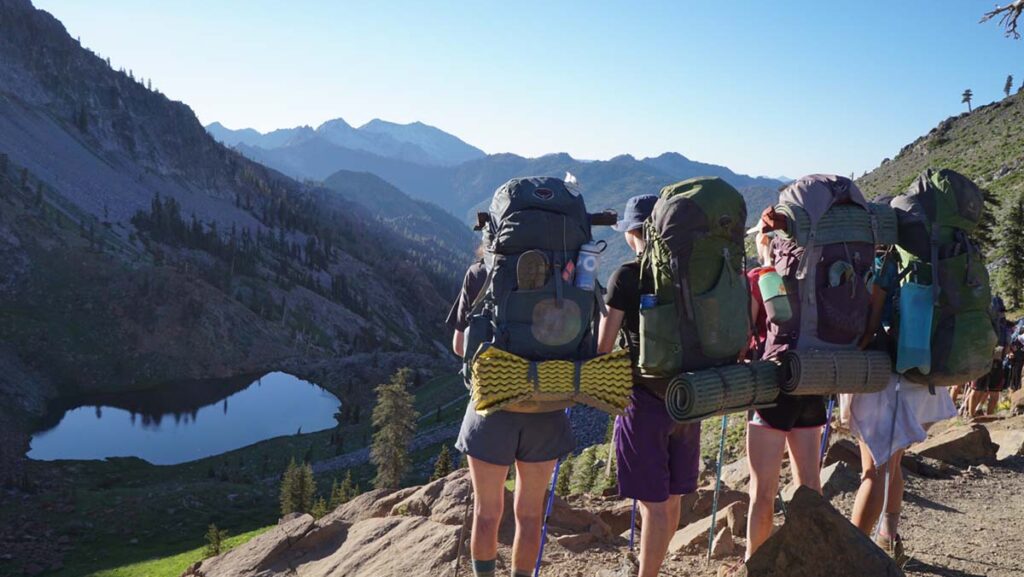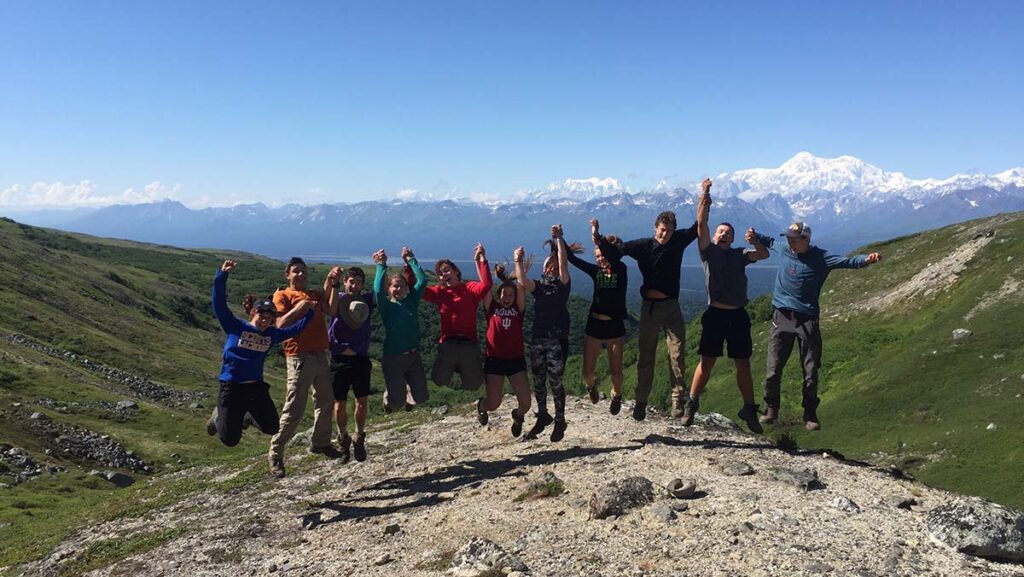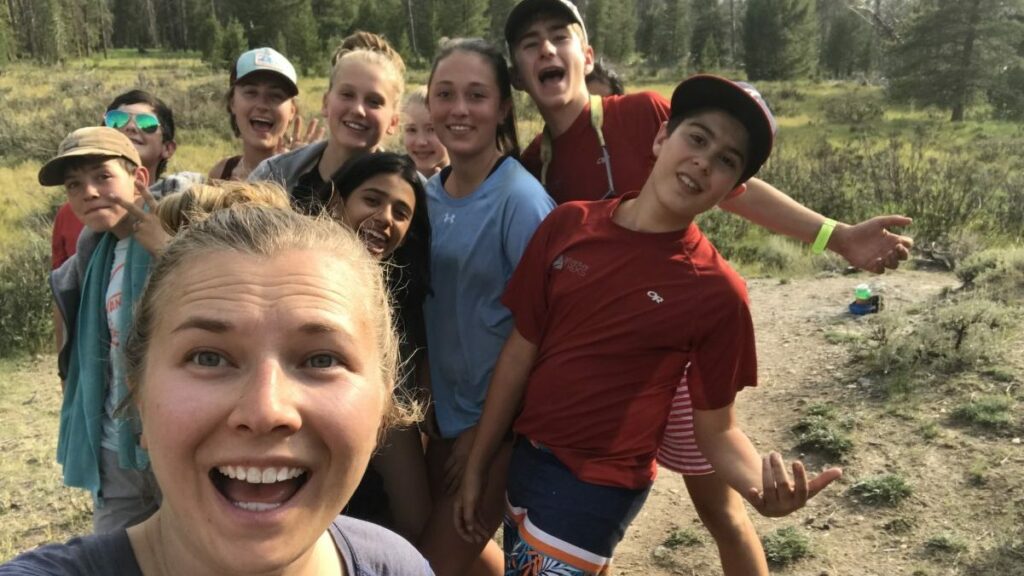
If you’re reading this, you may have already researched the extensive benefits of teen adventure camps. As more and more studies show that today’s teenagers are experiencing higher than ever levels of pressure, depression, and anxiety, parents continually seek out programs that boost confidence, increase independence and leadership skills, and offer inclusive communities so that their children can make genuine, lifelong friendships.
Adventure Treks is one of those such programs! Our adventure camps provide an array of lifelong benefits during formative adolescent years, including:
- A much-needed break from technology and digital media
- A chance to “rewrite” one’s narrative or story
- Multiple opportunities to step outside one’s comfort zone and experience personal growth
- Connecting to and developing an appreciation of nature
- Building lifelong friendships in a supportive, welcoming community
- Developing skills to thrive in the 21st century
Break from technology
Studies have shown that ever-growing use of technology and digital media are related to an increase in physical, psychological, and behavior disorders among adolescents. Now more than ever, teenagers and young adults are reporting overwhelming anxiety and worry in their day-to-day life, and they haven’t found effective ways to cope with the stress. It’s no secret that social media and smartphone use are linked to depression in adolescents. The question is: How can we help them manage and decrease anxiety?
It’s simple! At Adventure Treks, teens get a digital detox and are able to completely unplug from technology for two to four weeks, giving them a much-needed break and relieving the non-stop pressure they feel at school. Some students initially resist the idea of giving up their phones, but while they’re at summer camp, they realize that they can fully thrive without them.

A new narrative
A major appeal of teen outdoor adventure camps is that kids are able to be who they truly want to be—not who they feel pigeonholed into being at school. They can break free of whatever personality they’ve taken on at home: the athletic one, the quiet one, the noisy one, the fidgety one, the social one. At Adventure Treks, students have the opportunity to rewrite their story in a supportive and judgment-free community of people who accept them for who they are.
Comfort zones and personal growth
Many of us stay wrapped snugly in our comfort zones; we fear challenging ourselves because we don’t want to fail. Today’s children are less-equipped to deal with challenging situations, which leads to a fixed mindset of trying, failing, and giving up. Teen outdoor adventure programs promote and provide endless opportunities for teenagers to develop and cultivate a growth mindset, allowing them to try new things, fail, rebound from that failure, and then ultimately succeed because they’re working hard. What does this lead to? Think about the Yerkes-Dodson law: At Adventure Treks, when students go outside their comfort zone (i.e., experiencing an optimal level of stress), they perform better, their skills increase, and they feel more comfortable about leaving their comfort zone again. Plus, new experiences and new skills open the door to continue trying new things, which leads to teenagers becoming more well-rounded and open to embracing challenge. Often, it’s us as parents who hold our children back from venturing out and learning to take risks on their own.
Children and teenagers need risk for normal brain development. How do we detach from our children so they can venture out and learn how to take reasonable risks on their own? When they’re at AT, students are allowed to make decisions with low consequences, under the supervision of professional and trained outdoor educators. We make nightly “safety checks” part of our evening meets, where we work together to develop judgment, assess probability and consequences, and give our students the tools to make good decisions when they return home. We want them to live a life that is neither risk-averse or risky, but embraces the calculated, reasonable risks we all need in order to grow.

Lifelong appreciation of nature
It’s no secret that being outside reduces stress, depression, and anxiety (see here, here, and here). At a time when children and teenagers spend nearly nine hours per day online, it has never been more important to emphasize the importance of having unstructured time outside. (Read why we think being bored is a good thing.)
Kids who spend time outside have better social awareness, higher confidence, more creativity, reduced stress, and sleep better (exposure to sunlight helps regulate sleep patterns) than those who spend most of their time indoors. At Adventure Treks, students spend two to four weeks in beautiful landscapes across the North American west, deepening their appreciation and love of the outdoors. They pick up new hobbies that they can continue for a lifetime (and that supplement their current, more strenuous athletic hobbies, like soccer or running), including rock climbing, hiking, mountain biking, rafting, and kayaking, to name a few. We strive for our students to become advocates and conservationists for the world’s wild places so that they’re still around for their grandchildren to enjoy!
[If you haven’t already read it, we highly suggest picking up a copy of Richard Louv’s Last Child in the Woods.]
Building genuine friendships
While your children may have friendships that are healthy, sustainable, and genuine (and we hope that’s the case!), many relationships built in school are circumstantial. After all, you do spend your entire day together for over a decade! Outside of school, however, kids tend to bond with others on a more voluntary basis, mostly because they have similar interests or hobbies. At Adventure Treks, our students choose to push the envelope and do something different than their peers for the summer. They’re choosing to step outside their comfort zones and assimilate into a group of people whom they’ve never met. They quickly find common ground with people they might have otherwise not socialized with at school. We don’t tolerate cliques, mutually exclusive relationships, or bullying; rather, our instructors model a welcoming, inclusive, and judgment-free community—one where everyone feels welcome and free to be their best selves.
We can’t count the number of times we’ve heard about Adventure Treks reunions years after students age out of our programs. Adventure Treks friends are friends for life.

21st century and non-cognitive skills
Sure, “non-cognitive skills” is a buzzword/phrase—but for good reason. 21st century skills aren’t taught in school or in athletics; these interpersonal skills are recognized by leaders in education and business (like Google, Apple, and Dell) to be key to thriving in today’s world. We call our set of 21st skills the Great 8 Outcomes (read more here):
- Communication
- Collaboration and social achievement
- Creativity
- Critical thinking
- Leadership
- Self-management
- Resilience
- Optimism
The biggest discrepancy in the skills that top businesses expect in their employees and what their employees actually possess is in the area of leadership. Students improve their leadership through experience and practice, and few teenagers get real opportunities to develop these skills in middle and high school. The complexities of community living in an outdoor environment at Adventure Treks provide multiple opportunities to learn and practice leadership.